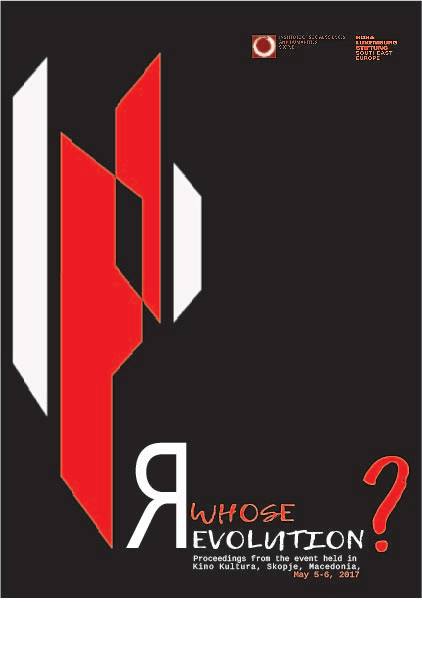
We kindly inform you that, as long as the subject affiliation of our 300.000+ articles is in progress, you might get unsufficient or no results on your third level or second level search. In this case, please broaden your search criteria.

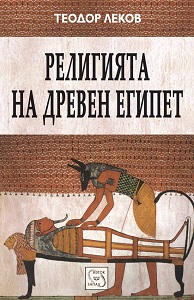
The book studies the Ancient Egyptian religion. The author describes the creation and its driving forces through the view of Egyptian concepts. The idea of God and the divine manifestations, the place of man in the world and the ways to achieve immortality are explored. The exposition is based on the study of ancient hieroglyphic texts and is illustrated with numerous examples. The book is intended for a wide range of readers who are interested in the religion and culture of Ancient Egypt. It contains three chapters: the world of gods, the creation of the world and the world of men. Special attention is paid on the concept of the kingship in Ancient Egypt. The Egyptian terminology and the names of gods and goddesses are formed as a dictionary at the еnd of the book.
More...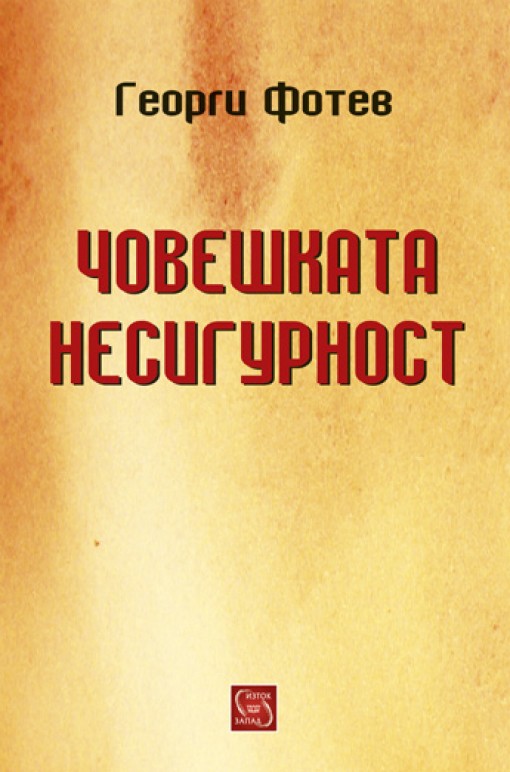
Prof. Georgy Fotev is a Bulgarian sociologist. His scientific works are in the areas of theory and history of sociology and the disciplinary fields of modern sociology. The focus of the research interests of G.Fotev is the nature of sociology as a multiple paradigm science. Another major theme in the works of Georgy Fotev is the dialogue as a base and horizon of multiple paradigm sociology. Georgy Fotev has publications in the fields of historical sociology, sociology of politics, ethnosociology, the crisis of legitimacy, sociology of values, etc. His books "The long night of communism in Bulgaria" and "Bulgarian melancholy" throw light on the dramatic fate of the Bulgarian national society. Georgy Fotev was Minister of Education and Science (1991 - 1992). He is professor emeritus of New Bulgarian University. In 2003 he was awarded the Distinguished Service Award from the American University in Bulgaria. Mankind is shaken by a multitude of uncertainty. There is an increasing perception that uncertainty becomes permanent. The focus is on the existential, social, political, economic, global and other basic varieties of human uncertainty. The author explores the fundamental conditions of human uncertainty and the main forms of her manifestation and experience. The phenomenon is seen in the light of the new science of chaos and complexity in the context of the risky society/world, in terms of catastrophic consciousness and the conditions of crisis types. Particular attention is paid to trust as a fundamental social attitude and condition against decadent attitudes and nihilism.
More...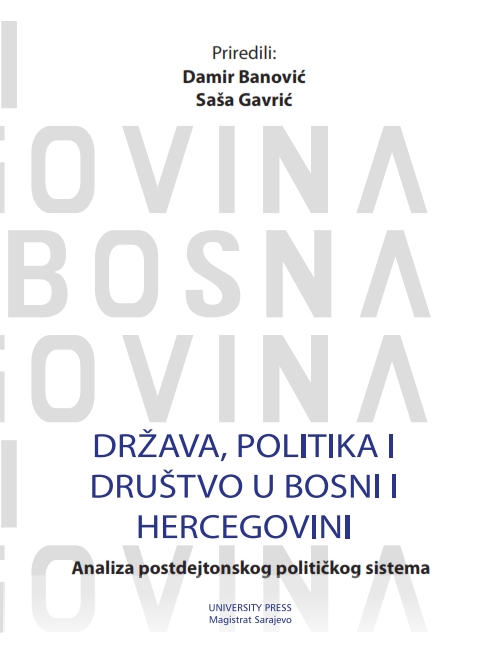
ljudska prava se temelje na pojmu urođenog dostojanstva svih ljudskih bića. Univerzalna su, neotuđiva, nedjeljiva i međuovisna. U Bosni i Hercegovini ljudska prava se štite na nivou države, kao i na nivou entiteta. Ustav Bosne i Hercegovine, te ustavi entiteta, na specifičan način štite ljudska prava, kroz direktnu primjenu Evropske konvencije o zaštiti ljudskih prava i osnovnih sloboda.
More...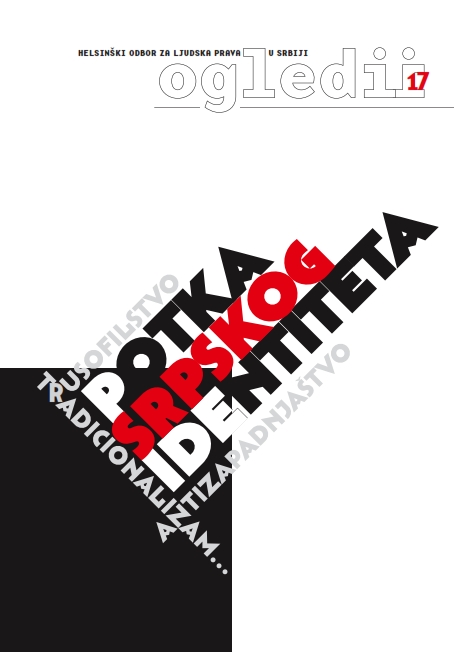
Poslednjih nekoliko godina, nakon nasilnog gušenja građanskih protesta zbog izbornih nepravilnosti (2011) i u obnovljenom predsedničkom mandatu Vladimira Putina (2012), Rusija je otvorenije nego do tada krenula u spoljnu ekspanziju. Nakon već ranije izvršene agresije na Gruziju (2008), sledio je oružani napad na suverenu Ukrajinu, potom i intervencija u Siriji. Slabo delotvorne zapadne sankcije zbog agresivnog rata protiv južnog suseda, čiju je nepovredivost granica i sama Rusija garantovala međunarodnim sporazumom iz Budimpešte (1994) i aneksija Krima (2014), kao dela međunarodno priznate teritorije Ukrajine, ojačale su hladnoratovske tendencije u svetu, a posebno u Evropi. Srbija se zbog svoje spoljnopolitičke dezorjentacije našla u središtu političkog disputa između nesigurnog zapadnog sveta i imperijalne autokratije Vladimira Putina. Ruska „meka moć” i pokušaji da destabilizuje Srbiju i odvrati je od nevoljno prihvaćene evropske agende ogledali su se i u činjenici da je Rusija uložila puno truda i materijalnih resursa u pokretanje desetina medija, portala, fondacija, udruženja građana i nevladinih organizacija sa ciljem jačanja antizapadnog raspoloženja u Srbiji i snaženja nacionalističkih, ksenofobičnih i proruskih tendencija. [...]
More...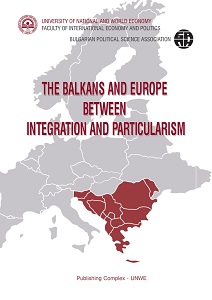
The 2017 referendum that transformed Turkey's constitutional system and the June2018 elections represent the final stage of the transformation project for New Turkey and the beginning of a new era in the history of the modern Turkish Republic. Authoritarian trends in government and social life, the strong centralization of political decision-making, and the unconditional personification and praise of the ruling will continue to deepen the dividing lines between Turkey and its EU partners. Authoritarian trends in government and social life, the strong centralization of political decision-making, and the unconditional personification and praise of the ruling party leader will continue to deepen the dividing lines between Turkey and its EU partners. On theone hand, Turkey is moving away from the prospect of EU membership, and on the other, President Erdogan, as the sole center of power in Turkey, will maintain a firm and irreconcilable tone in relations with the EU, especially as regards the negotiations on financial compensation that Turkey expects to receive to restrict migration flow from the Middle East.
More...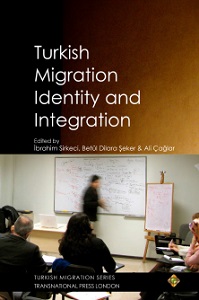
Germany’s Turkish communities have long been at the centre of vibrant political, academic and public deliberations. During the guest-worker years and the family reunification period that followed, and throughout their emergence as fixed attributes on German cities’ landscapes, Turks secured a firm place in debates in a Germany that was a reluctant and hesitant country of immigration. In recent years, they have been the prime focus of discussions and reflections on integration, citizenship, multiculturalism, segregation, social cohesion and the place of Islam in Germany. On the whole, the history of Turkish migration to and subsequent settlement in Germany during the post-1960s era has conventionally been associated with economic exploitation and hardship, residential difficulties and segregation, educational underachievement, confusion, uncertainty, shortsighted political strategies and ad hoc social provisions (Herbert, 1986; Abadan-Unat, 2011). Turks have gradually come to be perceived as the ethnic minority group least likely to achieve integration into German society, and as recognizable and clear Ausländer.
More...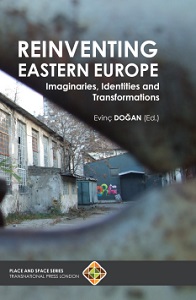
Implemented by the Macedonian national party VMRO-DPMNE the project “Skopje 2014” renewed the urban image of Skopje, capital city of the (Former Yugoslav) Republic of Macedonia and promoted a narrative of direct descent from the Ancient Macedonians, epitomized by the figure of Alexander the Great. Impressive statues, fountains, a triumphal arch, and new massive buildings now stand in all their grandeur in the city centre of the small republic’s capital city. Although apparently meant to give a new face to Skopje, these urban changes are also strictly tied to a “great” national narrative concerning the Macedonian nation – its roots and origins, and are apparently shaping and changing, not only the urban image of Skopje but also the national identity of the Macedonians.
More...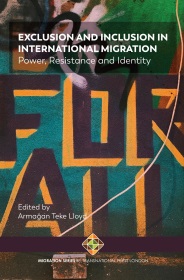
On the night of the 15th March 2018, the neighbourhood of Lavapiés in Madrid was literally on fire. A burst of rage swelled the streets as the district became a battlefield. That night, Madrid was raising its voice for Mame Mbaye, a black African resident that died just few hours ago running from a police identity control. A migrant insurrection broke out against these racist controls that had been increasingly happening in the neighbourhood since Mame arrived fourteen years ago. This time it was Mame, but it could have been any of the migrants that were claiming justice that night. The night of the 15th March was an explosion of urban rage in which Madrid claimed not to be a border anymore. In a later interview, Mame’s friend Serigne stated: “In Madrid you live with fear. Every morning we joke and say each other: ‘Have a good breakfast because you never know if you will ever be back home for lunch”.
More...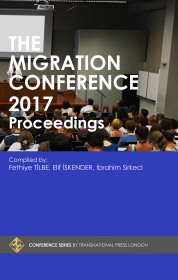
This volume brings together a selection of papers presented at the 5th Migration Conference hosted by Harokopio University Athens, 23-26 August 2017.This selection of papers presented at the conference are only a small segment of unedited contributions while many other papers have already been published in or submitted to edited books and refereed journals. There were a total of about 400 papers presented over 100 parallel sessions and three plenary sessions at Kallithea Campus of Harokopio University, Athens, Greece.The keynote speakers included Oded Stark, Saskia Sassen, Giuseppe Sciortino, Neli Esipova and Yuksel Pazarkaya.
More...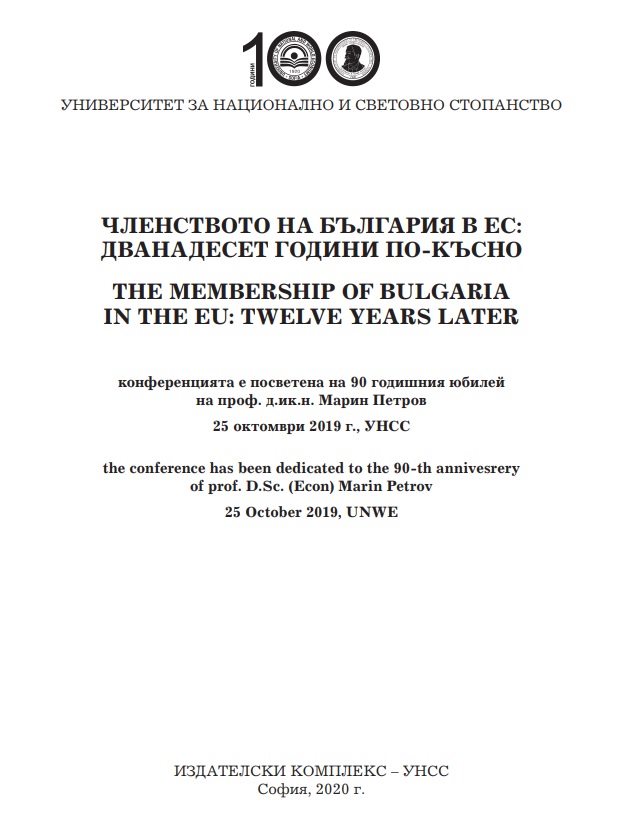
This article is part of a study by the author made in the 2016-2019 year of the Balkan Regional Development Agencies. Regional competitiveness is viewed in terms of psychological, cultural and behavioral aspects. These characteristics are specific to each territorial community and have a significant impact on economic processes and hence on the competitiveness of the region. The article presents the individual elements of the community culture of the territory, each element being defined individually in view of its importance as a factor for competitiveness. The author has used in his article the ideas of a number of authors with significant contributions in the field of psychological, social and cultural studies of the regions. At the end of the article the author has formulated conclusions that can be a starting point for taking into account the influence of psychological and cultural aspects of competitiveness and their incorporation into the policies for effective regional economic development.
More...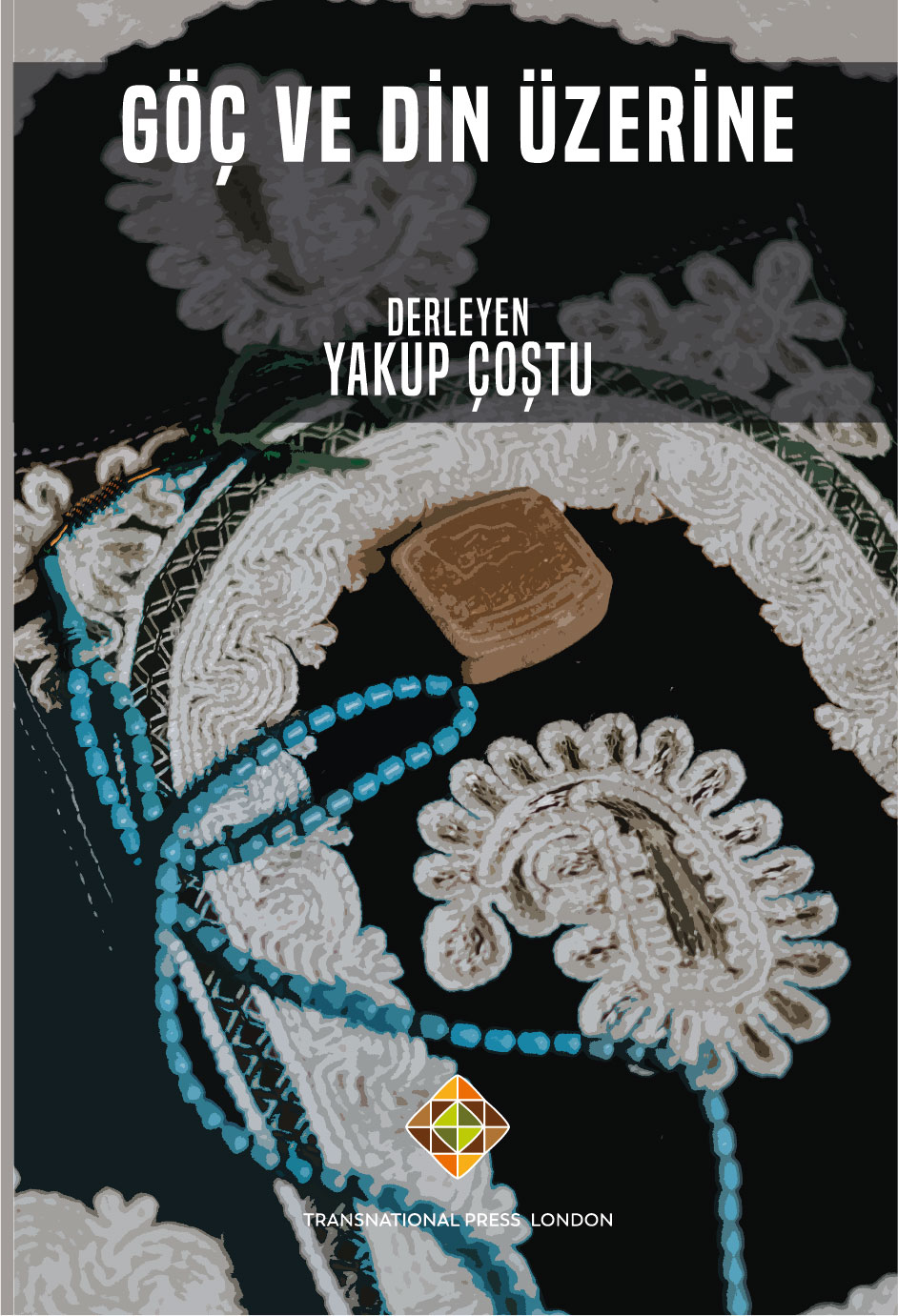
Hangi nedenle olursa olsun göç, sadece bir ‘yer değiştirme’ değildir. İnsanlar üzerinde derin ve kalıcı izler bırakır. Göç eden insan ve guruplar, dünyayı ve kendi değerlerini kökten bir yeniden gözden geçirmeye zorlanırlar. Bu radikal pozisyon, evdeki rahat ve huzurun bozulmasının bir sonucu-dur. Göç, eğer iç savaş gibi travmatik olaylardan kaynaklanıyorsa, değerlerin alt üst oluşuna da yol açabilir. Ya da tam karşıtı değer ve inançlara radikal dönüşlere de neden olabilir. Nihilizm ile radikalizm arasında bocalayan göçmen, bu sorunu aşmak için çeşitli yollar denemek durumundadır.
More...
Göç olgusunun dinsel ve mezhepsel kimlikler üzerindeki etkileri ve bu etkilerin tarihsel örnekleri nelerdir? Buna ilaveten tarihsel bir realite olan göç olgusunun iyi tahlil edilebilmesi için ne gibi hususlar göz önünde bulundurulmalıdır? Bu olgunun insan üzerindeki etkisi din ve mezhep anlayışına yansımaları nasıl olmaktadır? şeklindeki sorular, cevaplarını arayacağımız hususlardandır.
More...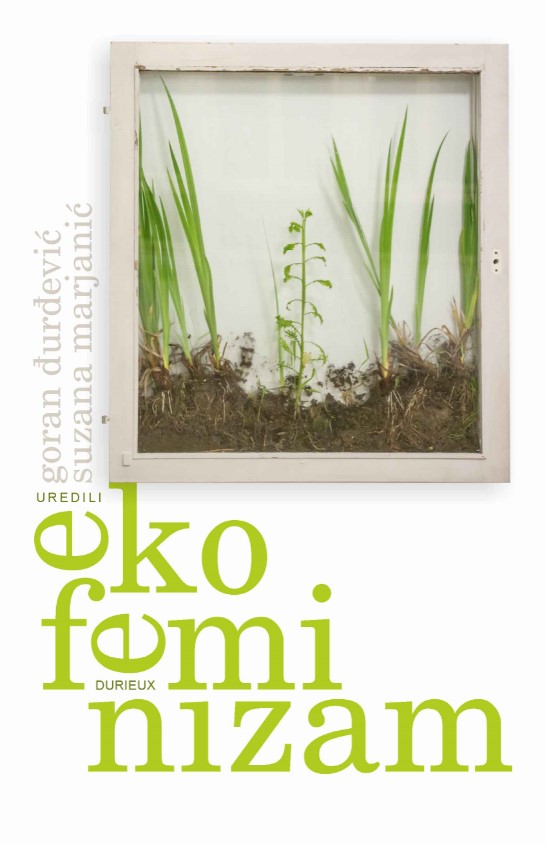
Proceedings Ecofeminism: between women's and green studies, edited by Goran Đurđević and Suzana Marjanić (Durieux Publisher, Zagreb, 2020), consists of 40 texts from the humanities and social sciences (anthropology, journalism, political science, sociology, literary theory, science of education) and art (poetry and prose), written by 37 authors from Croatia, Australia, Bosnia and Herzegovina, Italy, North Macedonia, Serbia, Slovenia, the United Kingdom and the United States. The starting point for edited book was workshop cycle on the Faculty of Humanities and Social Sciences in Zagreb organized with help of professor Drago Roksandić and there was created idea for book by Mirjana Grabovac, Karmen Ratković and Suzana Marjanić. Also, various colleagues such as Dražen Tončić and Mirta Maslać from Durieux, artist Kristina Pongrac and reviewers Ivica Bakota, Zlatko Bukač and Ana Stojanović have been an important part of this volume. The aims of the collection are to actualize ecofeminism and encourage critical reflection and analysis of long-term ecofeminism in Croatia and Southeast Europe; permeation of global and local approaches and knowledge transfer; openness to young authors. For these reasons, the book can be read on several levels: theoretical as a contribution to the knowledge of the theory of ecofeminism in the context of contemporary trends, socio-political as an analysis of social processes and structures, activist through the analytical perspective of activism of individual groups and actors in public, performative and political life. The final part of the volume are poems and this piece of book shows a holistic approach to ecofeminism and integration of scholarship, essays and art which is leading back to the roots and indigenous perspectives of life and community understood as integration.
More...
Although the »women’s issue« has been founded as a political issue several decades ago, along with the development of »new wave« feminism, or neo–feminism, that brought to changes in the approach within the whole series of social issues, only with the emergence of »the green movement« and forwarding of »green« issues as political »women issues« as well as environmental issues, have they assumed a new importance within ecofeminist alternative groups. Ecofeminism encompasses different approaches, from liberal to ecocentric ecofeminism groups. In the course of numerous discussions between ecofeminist and feminist groups and their standpoint, there are also other intrinsic environmental groups and their standpoints, from which most prominent group representing deep ecology viewpoints, with which ecofeminist orientations are frequently in disagreement. Regardless of, however, certain disagreements within certain ecofeminist groups and their approaches, some of which are even useless or derogatory for (eco)feminism, as well as conflicts with the deep ecology, from the standpoint of social ecology it is important to take into account and take into the consideration all these (eco) )feminist standpoints, because they direct us to the situation where we should move beyond faulty dualism of the opinion model that characterizes West social and philosophical tradition, and towards which women are inferior to men, nature towards culture, emotions towards reason and body towards mind, under the condition that we want to achieve environmentally harmonious living, integrating nature with culture into an organic eco–cultural whole.
More...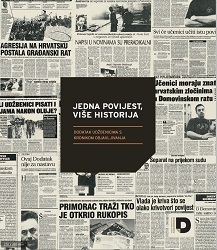
The Supplement to Textbooks of Current Croatian History is a handbook for history lectures, which was ordered by the Croatian Ministry of Science, Education, and Sports after the five-year moratorium on teaching current history in the Podunavlje region expired in the 2002/2003 school year. This easternmost region of Croatia remained under the control of local Serbs after the end of the 1991-1995 conflict, and was returned to Croatian sovereignty in 1998 after a transitory period under UN administration and the signing of an agreement between the Croatian government and the local Serb population. Part of the agreement included the decision that instruction in Podunavlje for Croat and Serb children would take place in separate classrooms, and that a five-year moratorium on teaching contemporary Croatian history in classes taught in the Serbian language would be imposed.
More...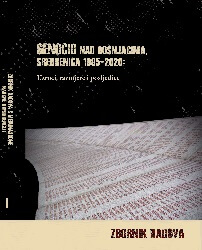
Genocid, genocid, genocid! Tom prividno poznatom riječju imenovani su progoni i ubijanja bosanskih muslimana u Srebrenici 1995. godine. Za to djelo osuđeno je više pojedinaca koji su ga domislili, podstakli i/ili proveli. Tom riječju, koju su izrekli suci, koju potomci i srodnici ubijenih ponavljaju kao molitvenu utjehu, užasnuta i ustrašena većina više je anestezirana negoli utješena. Ali riječi nemaju značenja izvan rečenice. Kada su im nametana korištenja u izdvojenosti, one postaju plastične. Čine se neprijeporno shvatljivim, a ipak su sve dalje od tog što njihovi korisnici hoće u žalosti i patnji, u ljubavi i mržnji te u nastojanjima da prežive i budu sretni. [...]
More...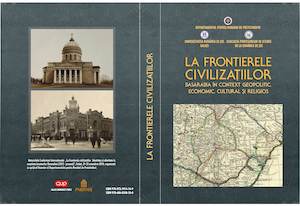
Parte integrantă a spaţiului geografic românesc, teritoriul dintre Prut şi Nistru a parcurs aceleaşi etape istorice pe care le‑a cunoscut întreaga evoluţie a românilor, din cele mai vechi timpuri şi până la începutul secolului al XIX‑lea, când a fost cotropit de Imperiul Rus. Acesta, profitând de conjunctura politico‑militară favorabilă determinată de „Criza orientală”, a ocupat Principatele Române şi „prin înşelăciune şi intimidare, a determinat Poarta otomană să recunoască încorporarea la Rusia a spaţiului românesc de la est de Prut, deşi turcii nu stăpâneau efectiv acest teritoriu şi nimic nu le dădea dreptul să facă această cesiune teritorială."
More...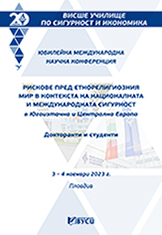
The present Proceedings of the Graduate School of Security and Economics (Volumes I and II) reflect the highly academic and highly productive International Research Conference on „Risks to Ethno-religious Peace in the Context of National and International Security in Southeastern and Central Europe“ held in November 2023. The edition contains the main and plenary papers. They are structured in four scientific panels focusing on topics such as „National Security and Ethno-religious Peace – Dilemmas, Challenges and Prospects“, „Risks to Ethno-religious Peace and National Politics – Security Aspects“, „State Politics, Ethnic Relations, National and International Security“ and „Ethno-religious Peace, National Security and Social Sciences“. Among the authors are Bulgarian and foreign proven names in scientific and academic circles.
More...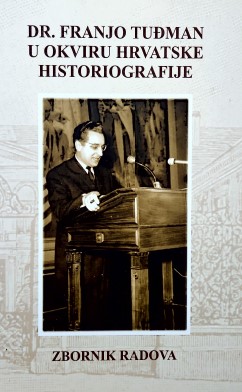
On the occasion of the tenth anniversary of the death of Dr. Franjo Tuđman, the first director of the Institute for the History of the Workers' Movement of Croatia and the first president of the independent, contemporary and democratic Republic of Croatia, the Croatian Institute of History organized a scientific conference on December 10 and 11, 2009. Dr. Franjo Tuđman in Croatian Historiography. Although Dr. F. Tuđman is better known and more interesting to the general public as a politician and statesman, and although his work as a historian and politician is difficult to separate, the organizers of the scientific conference focused on the work of Dr. F. Tuđman as a historian, wanting scientists, primarily historians and political scientists, from scientific novices to academics, sine ira et studio, through selected topics to approach a comprehensive questioning of the significance and influence of Dr. F. Tuđman on the historiography of modern Croatian history.
More...